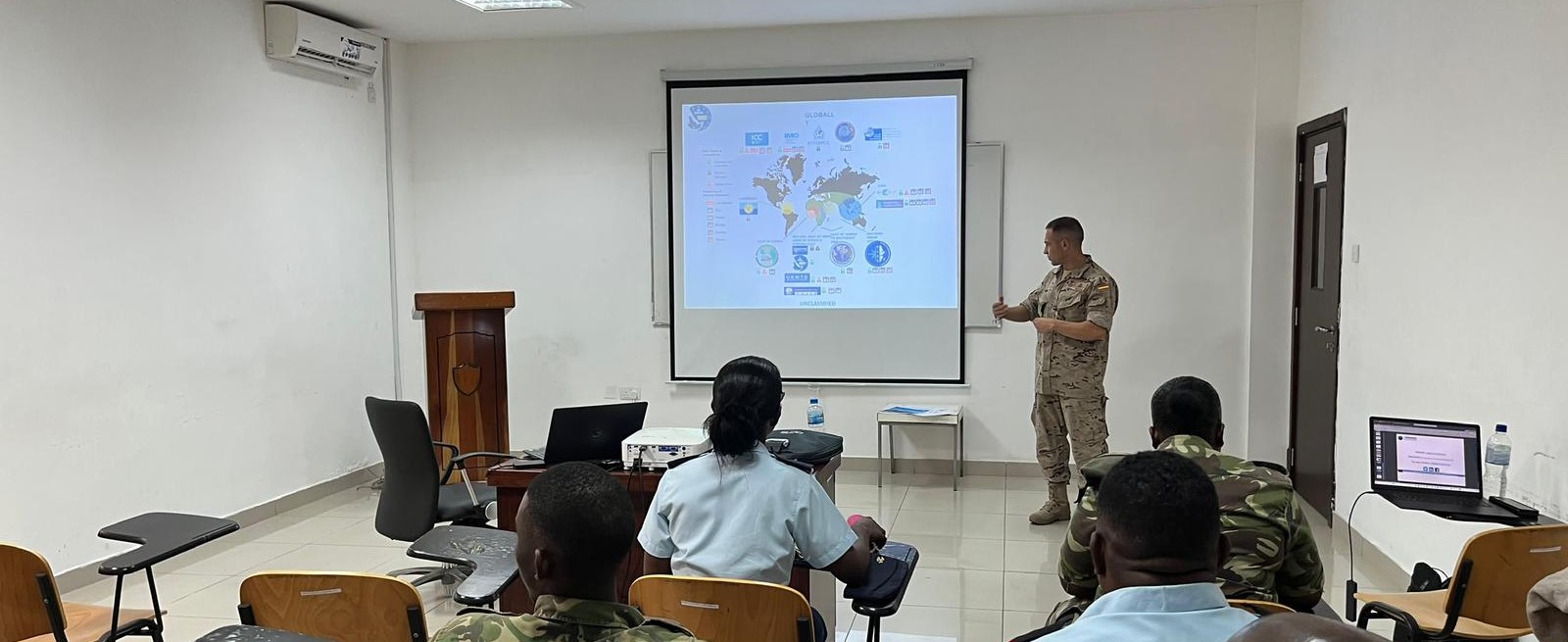Regional Training
Since 2010, IMO has been supporting Djibouti Code of Conduct participating States to develop their maritime law enforcement capability to counter piracy and other threats to safety and security of navigation. To boost the effort, IMO established partnerships with other international and regional organizations including Saudi Arabia’s Mohammed Bin Nayef Academy of Marine NATO Maritime Interdiction Operational Training Centre (NMIOTC), East African Standby Force (EASF), British Peace Support Team (AFRICA), EU CRIMARIO, US AFRICOM and others. From 2011 to date, 100 courses have been delivered under the auspices of the DCoC which have benefitted 1800 students thus far, from all the 20 participating countries.
The “Jeddah Meeting” of signatory States called upon the Secretary-General of the International Maritime Organization to continue developing and promoting training courses appropriate to the wide, effective and uniform implementation of the provisions of the Code, and also called for co-operation from member States to develop and promote training and educational programs for the region.
The current focus of the DCoC training programme is to prioritize the development and delivery of training packages to enhance port security, Maritime Domain Awareness (MDA) and table top exercises for decision makers geared to encourage the establishment of National Maritime Security Committees and whole of government approach in dealing with maritime security issues.
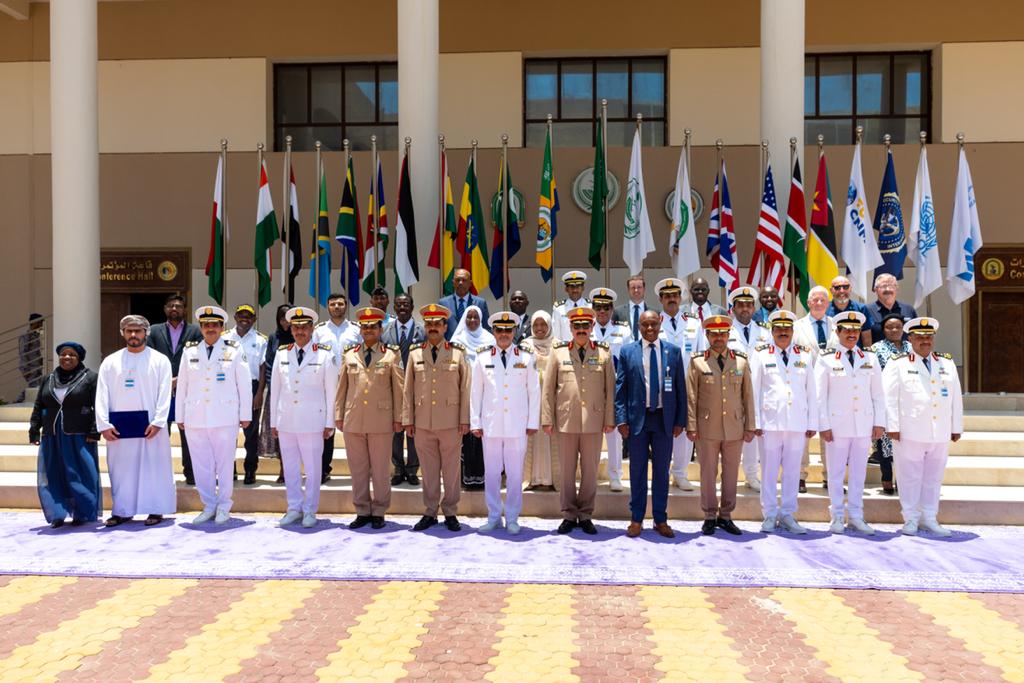
The Regional Workshop on Development of Standard Operating Procedures (SOPs) for the DCoC/JA Information Sharing Network
The High-Level meeting of DCoC Signatory States held in Jeddah, Saudi Arabia from May 7 to May 2018 called for the continuation of training support by the Kingdom of Saudi Arabia in partnership with the International Maritime Organization (IMO) to support the implementation of the Code of Conduct, as amended. Additionally, Resolution 3, adopted during the Jeddah meeting held from January 10 to January 12, 2017, urged the Secretary-General of the IMO to continue developing and promoting training courses suitable for the comprehensive, efficient, and consistent implementation of the provisions of the Jeddah Amendment. The resolution also called upon signatory States to collaborate with the IMO in creating and promoting training and educational programs focusing on the management of the marine environment, prioritizing safety, security, and law and order at sea. In line with this commitment, the IMO, in partnership with the Kingdom of Saudi Arabia, organized a two-week Regional Workshop on Developing Standard Operating Procedures (SOPs) for the DCoC Information Sharing Network (ISN). The workshop took place at the Jeddah Academy for Maritime Science and Security Studies from July 30 to August 10, 2023. This 10-day workshop brought together National Maritime Domain Awareness (MDA) leads and/or Managers of National Maritime Information Sharing Centres (NMISCs) from all participating States to collaboratively develop SOPs that will be utilized by all participating States in operating their Regional and National Maritime Information Sharing Centres. The aim of this collaboration is to promote interoperability and establish a fit-for-purpose regional network across the DCoC. The workshop was designed as a follow-up to the resolutions of the previous DCoC High-level meeting held from November 22 to November 24, 2022, with a specific focus on the development of National Maritime Information Sharing Centres (NMISCs). The outcomes of the workshop will be presented at the next high-level meeting scheduled for October 24-26, 2023, for endorsement and implementation.
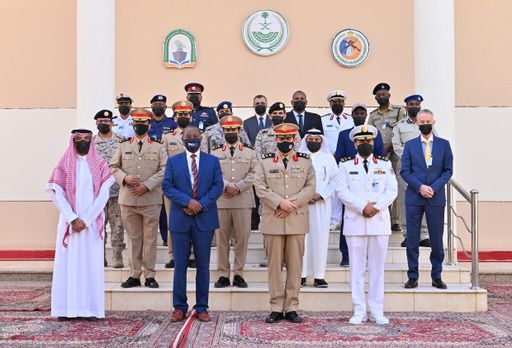
Combating New and Emerging Threats Workshop
This 9-day course was developed by IMO to introduce participants to the emerging threats that will shape the maritime threat picture in the short to medium term, and present participants with an overview of maritime security as a concept, looking at the various theoretical models to provide an understanding of the underlying elements that contribute to both security and insecurity in the maritime domain. This included an emphasis on the nexus between maritime security and lack of effective maritime security governance. Participants also received information regarding some notable maritime security incidents that shaped the evolution of state responses to these threats. Participants received a description of the current international legal framework that addresses each specific issue as well as information on the way various coastal states have implemented domestic legislation. The workshop was facilitated by a team of experts from the Saudi Arabia Border Guard, IMO, INTERPOL, INTERPORTPOLICE, and IOM, from preparation to delivery.
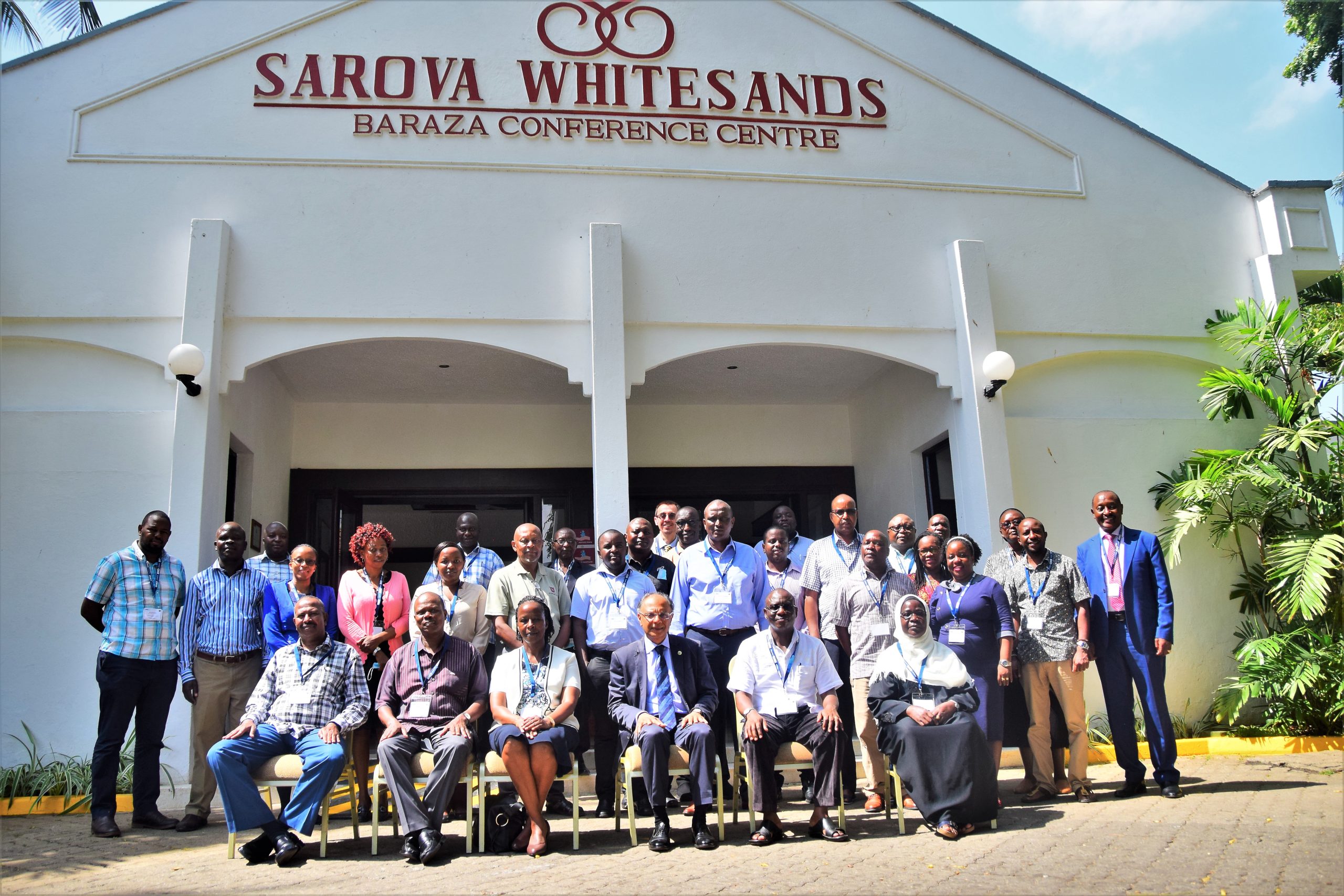
National Maritime Security Strategy development workshop
Read more: https://dcoc.org/development-of-national-maritime-strategy-set-to-boost-kenyas-blue-economy/
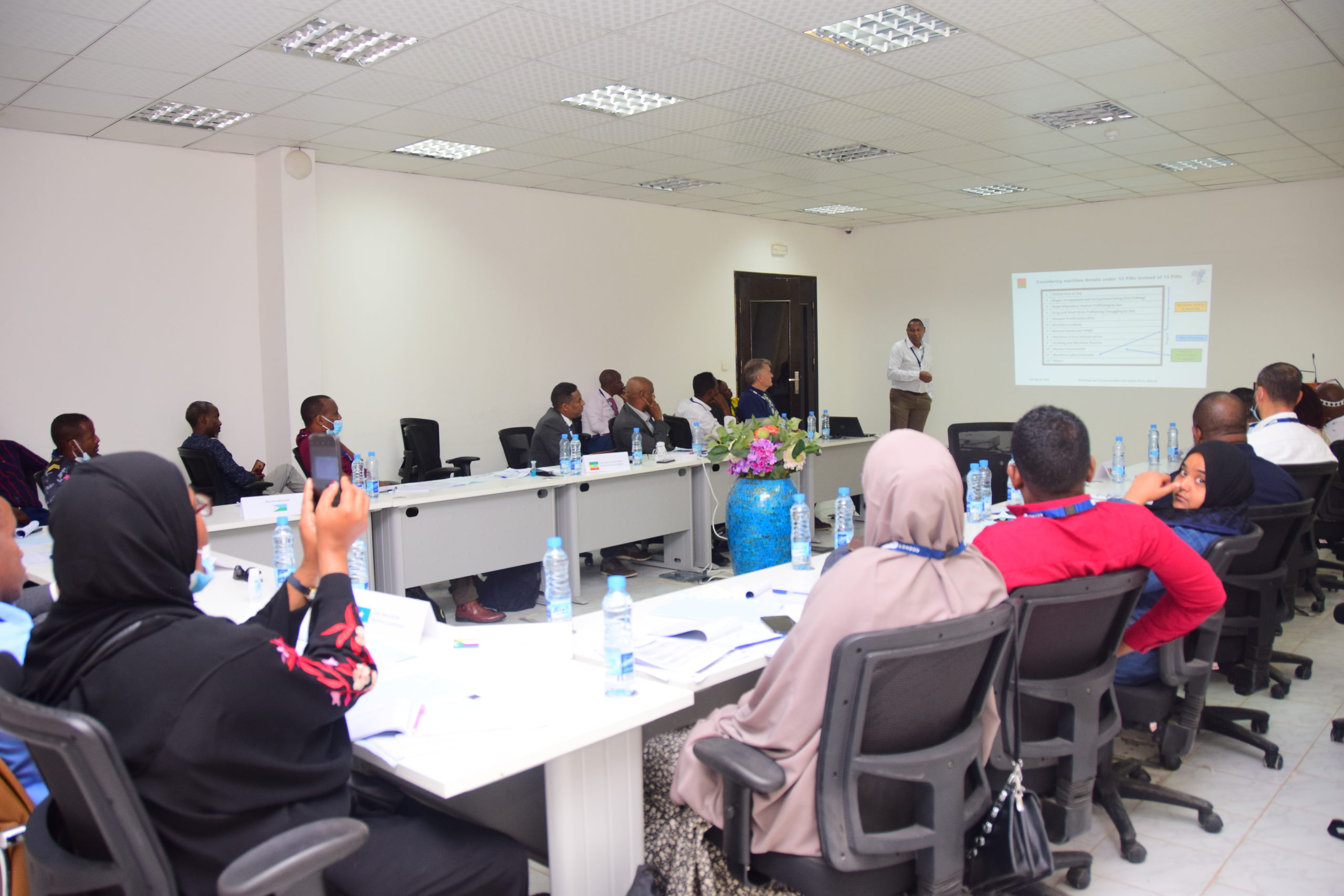
Regional Workshop on the Best Practices for Information Sharing Workshop
The DCoC/JA expanded mandate covers transnational organized crimes Working Group One has developed a Strategy and Roadmap to implement the DCoC Information Sharing Network, which focuses on the establishment of the National Maritime Information Sharing Centres (NMISCs) where the NMICs will form the cornerstone of the of the envisioned ISN. The main aim of the workshop was for the participants to review the Roadmap and Strategy with an aim of developing practical goals for NMIC development and agreement on a timeline that could have these centres operating within a 2-year timeframe. These recommendations would then be briefed to Working Group One on the final day of the workshop. The sub aim of the Djibouti Workshop was to develop practical proposals as recommendations for Working Group Two that would ensure that operational objectives of the ISN could be achieved
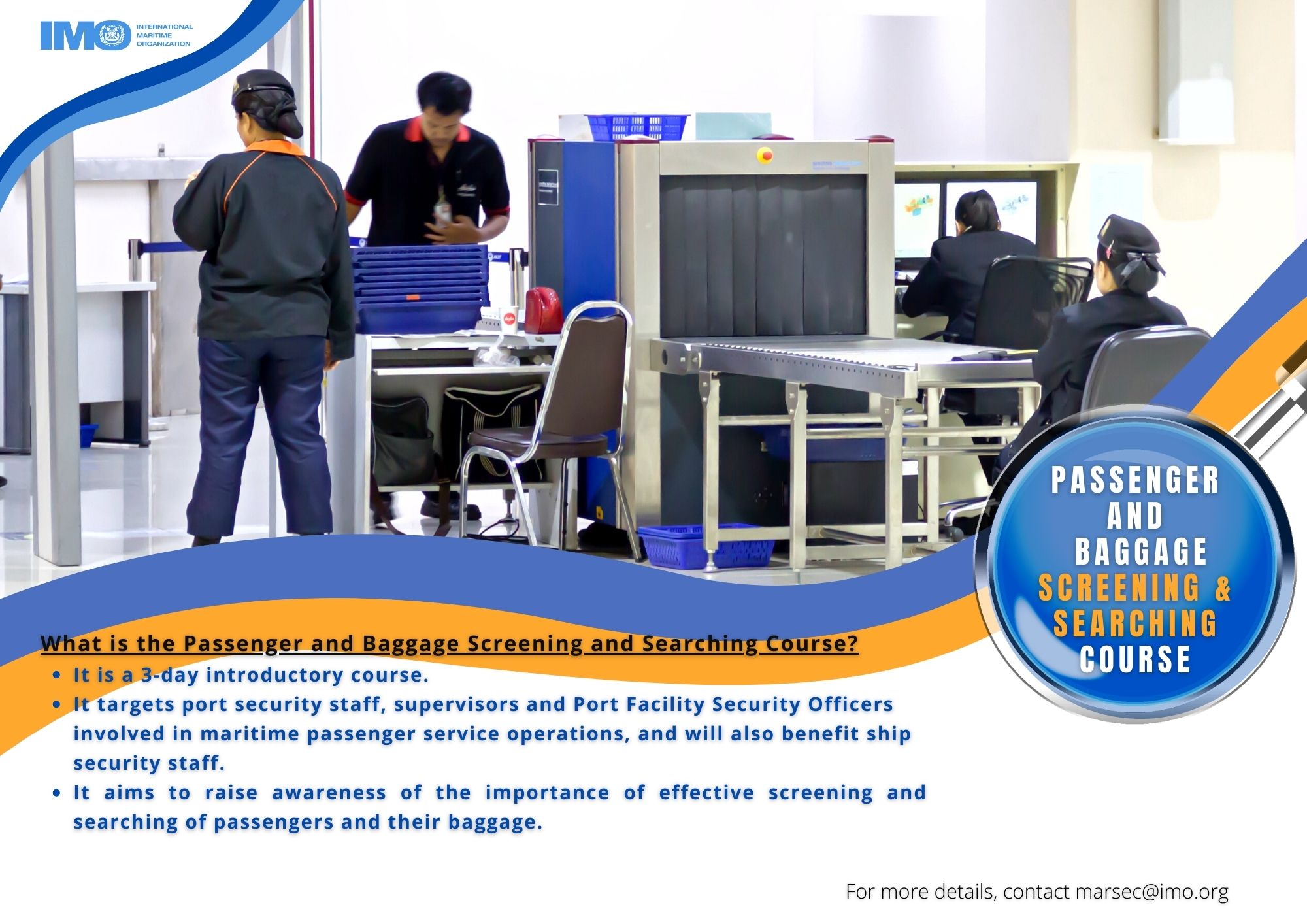
Regional Pax and Baggage Screening and Searching Workshop
The mission consisted of a 3-day regional introductory workshop for national representatives to receive technical presentations and provide an opportunity for them to discuss and share good practices on the establishment of effective methods to screen and search passengers in the maritime port environment
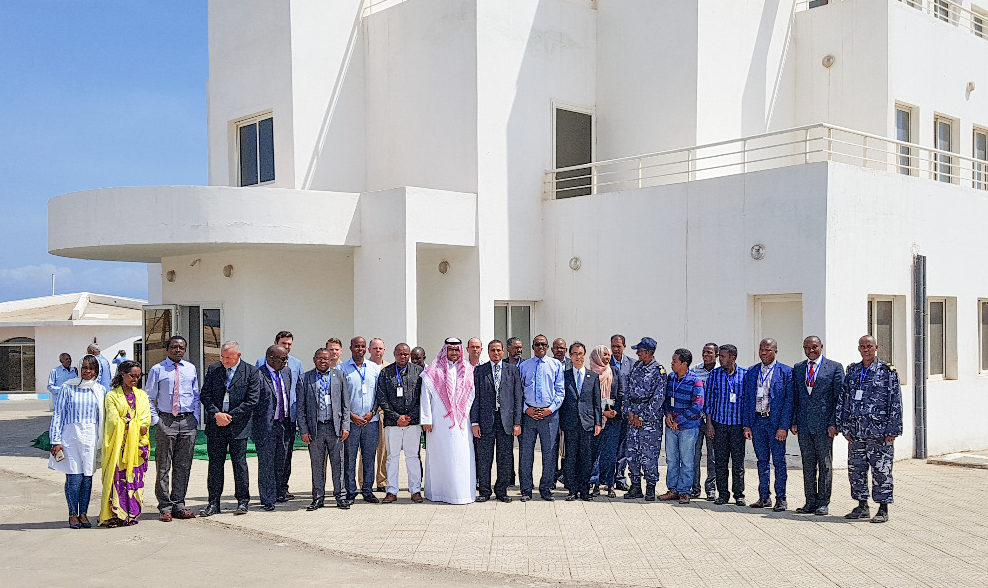
Training to Implement the Djibouti Code of Conduct
To support National Focus Points involved in implementing the Code's provisions, a training workshop was held at the Djibouti Regional Training Centre (DRTC), Djibouti (24-26 September). The IMO-led workshop was the second in a series of regional maritime security courses, funded by the Government of Japan. Formally launching the course, H.E. Koji Yonetani, Japan's Ambassador to the Republic of Djibouti, thanked IMO for spearheading initiatives to combat piracy and other illicit maritime activities that threaten security and safety of navigation in the West Indian Ocean and the Gulf of Aden. He expressed Japan's commitment to continue supporting regional capacity building efforts through the Djibouti code of conduct. Following the training, participants agreed on a plan of action, for each signatory State to achieve clearly defined and measurable outcomes that will help them to meet their obligations under the Code and, by extension, those IMO and other international Conventions with respect to maritime security, facilitation and maritime law enforcement to which they are parties. This will better enable and ensure the sustainable development of the maritime sector in line with the United Nations Sustainable Development Goals. The focus will be on building firm foundations at national level that then form the basis for stronger regional cooperation. Key to this will be the establishment of multi-agency, multi-disciplinary national maritime security and facilitation committees, national maritime information sharing centres and the development of a national maritime strategy, underpinned by a national maritime security strategy achieved through a whole of Government approach. The workshop was led by IMO's Mr. Kiruja Micheni and a team of consultants. The workshop was attended by 22 officials from Comoros, Djibouti, Ethiopia, Kenya, Madagascar, Mauritius, Mozambique, Saudi Arabia, Seychelles, Somalia, South Africa, United Republic of Tanzania and Yemen.
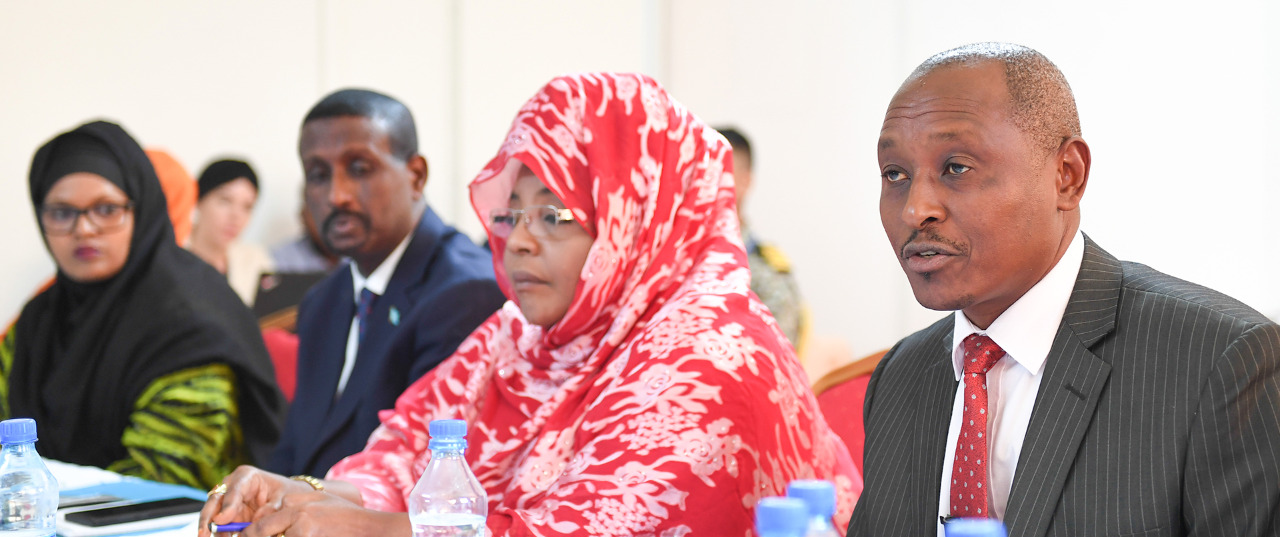
Training on Cooperating to Counter Maritime Crime
IMO’s ongoing work to counter piracy/armed robbery against ships and other illicit activities at sea went underway at the Mohammed Bin Naif Academy for Maritime Science and Security Studies, Jeddah, Saudi Arabia on 9th to 27 February. Participants from 18 countries shared best practices and learning skills to deal with maritime crimes at sea – including piracy/robbery, drug trafficking, marine terrorism, weapons smuggling, human trafficking and more. It is the second time that countries across three regions have been invited to participate in such an event, which is primarily intended for countries implementing the Djibouti Code of Conduct (DCoC) and its Jeddah Amendment. The training has been extended to participants from countries involved in the West and Central Africa Code of Conduct and the Regional Cooperation Agreement on Combating Piracy and Armed Robbery against Ships in Asia (ReCAAP). Female participants from Kenya, Philippines, Saudi Arabia and Seychelles, took part in the training at the Academy for the first time. This followed commitments made by Saudi Arabia to support last year’s World Maritime Day 2019 theme “Empowering Women in the Maritime Community” which raised awareness of the importance of gender equality, in line with the United Nations' Sustainable Development Goals, and to highlight the important of the yet under-utilized contribution of women.
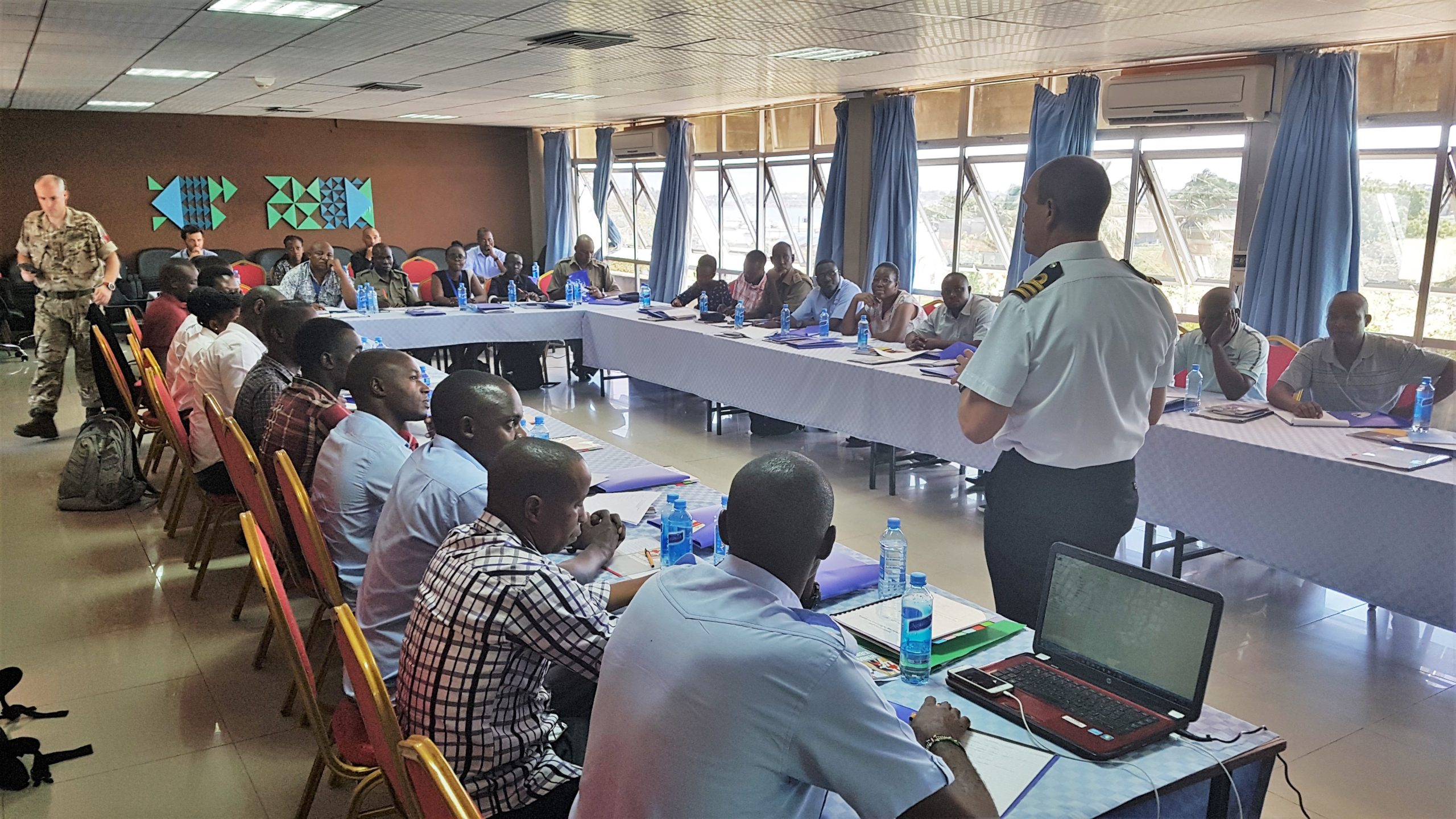
Training to Enhance Maritime Security in Kenya
Maritime law enforcement officials* from Kenya are taking part in a two-week training course on best practices for visit, board, search and seizure of vessels, in Mombasa, Kenya (11-22 February). The multi-agency course brings together 30 officials to learn skills for effective coordination in combating maritime crimes and procedures used to successfully board and search a vessel of interest. The training is part of IMO’s support for implementing the Jeddah Amendment to Djibouti Code of Conduct 2017, a regional agreement against maritime crime in the Gulf of Aden and western Indian Ocean area, which IMO helped to establish. Implementation of the code of conduct is supported by a range of international partners including United Nations Office on Drugs and Crime (UNODC), Food and Agriculture Organization (FAO), International Police Organization (INTERPOL), Mohammed Bin Naif Academy for Maritime Science and Security Studies (Saudi Arabia), United States Coast Guard, US Naval Forces Africa, Canadian Coast Guard, British Peace Support Team (Africa), NATO Maritime Interdiction Training Centre (NMIOTC) and others. The ongoing course is supported by a joint Royal Navy/Royal Marine training team of seven experts from the United Kingdom and four experts from the International Committee of the Red Cross – to teach skills on International Humanitarian Rights Law, use of force, arrest and detention, search and seizure, and judicial guarantees. *from the Kenya Maritime Authority, Kenya Coast Guard Services, Kenya Ports Authority, Kenya Maritime Police Unit, Kenya Navy, Kenya Fisheries Service, Immigration, Port Health, and Kenya Revenue Authority
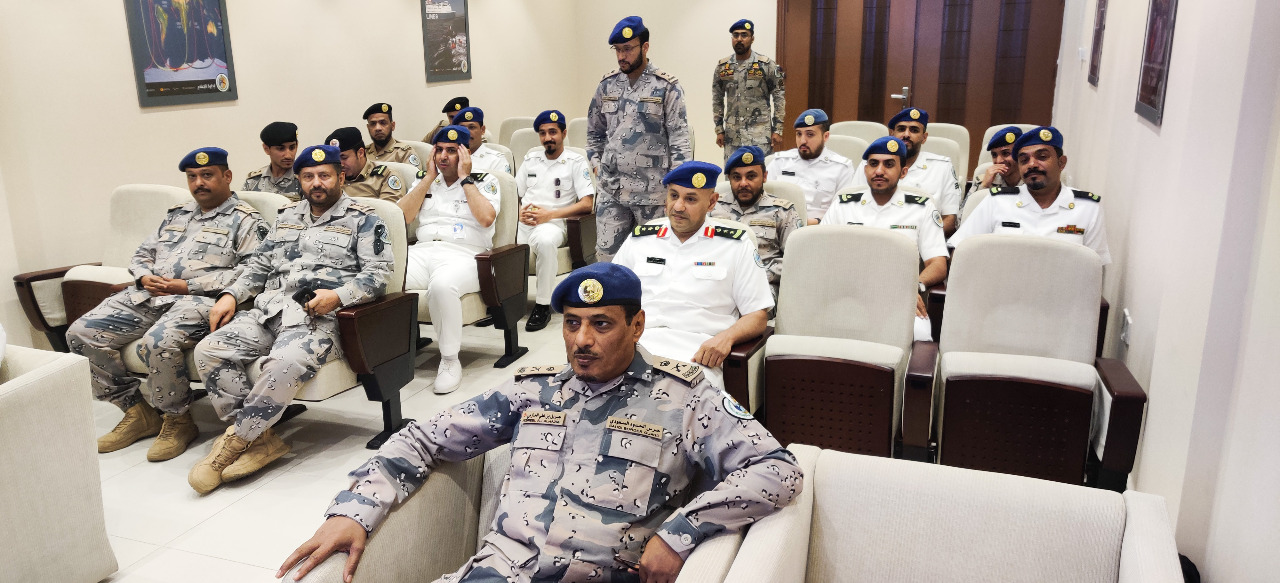
National Workshop On Support Implementation of Kenya Coast Guard Services
Senior officials from the newly established Kenya Coast Guard Services underwent training on coast guard functions at a national workshop in Mombasa, Kenya between 24th and 28th June 2019. Fifteen participants took part in the training, which is using scenario development methodology and plenary discussions to highlight issues, identify insights and develop deeper understanding of effective ways to meet coastguard functions – with a view to enhancing maritime security in Kenya. The training was organized by the United Kingdom and IMO, under the auspices of the Jeddah Amendment to the Djibouti Code of Conduct. It was supported by a joint team from the UK Maritime Coastguard Agency (MCA), Royal Navy International Defence Training (RNIDT), and facilitated by the British Peace Support Team Africa (BPST(A)) and IMO. Other international partners supporting the implementation of the Djibouti code of Conduct (Japan, Denmark and the International Committee of the Red Cross) are also in attendance and contributing to the discussions.
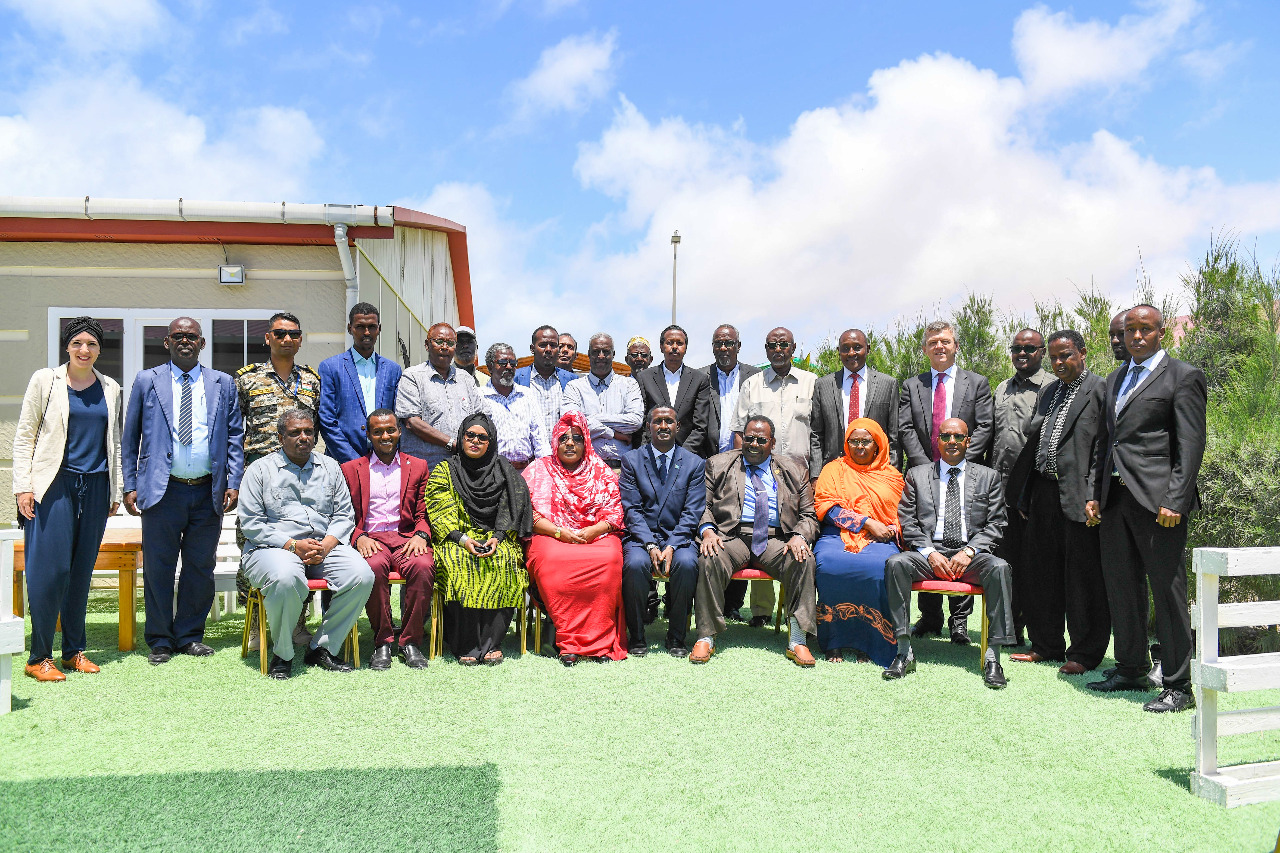
Enhancing Maritime Security in The Indian Ocean and Gulf of Aden Area
How do you deal with maritime crimes at sea - and how do you train others to do so? These are the skills taught on the latest in a series of regional training of trainers courses on combating insecurity in the maritime domain. Participants from 18 countries* are attending the course, at the Mohammed Bin Naif Academy for Maritime Science and Security Studies, Jeddah, Saudi Arabia (30 June - 11 July). Participants learned teaching skills. They are also becoming familiar with how to deal with maritime crimes at sea, including piracy/robbery, drug trafficking, marine terrorism, weapons smuggling, and human trafficking. The training is being conducted by subject matter experts from the Saudi Arabia Border Guard, International Committee of the Red Cross/Red Crescent and IMO. The course is jointly organized by IMO and the Kingdom of Saudi Arabia under the auspices of the Jeddah Amendment to Djibouti Code of Conduct. It is part of a training programme to prepare selected participants to acquire the necessary skills to deliver training in their own countries and regionally. This is the tenth course in a series under a sponsorship programme of the Kingdom of Saudi Arabia, through IMO. To date, 226 students from across the region have benefitted from the training, since 2013. *Bahrain, Bangladesh, Comoros, Djibouti, Egypt, Ethiopia, Jordan, Kenya, Madagascar, Maldives, Mauritius, Mozambique, Oman, Saudi Arabia, Seychelles, Sudan, United Republic of Tanzania and Yemen.
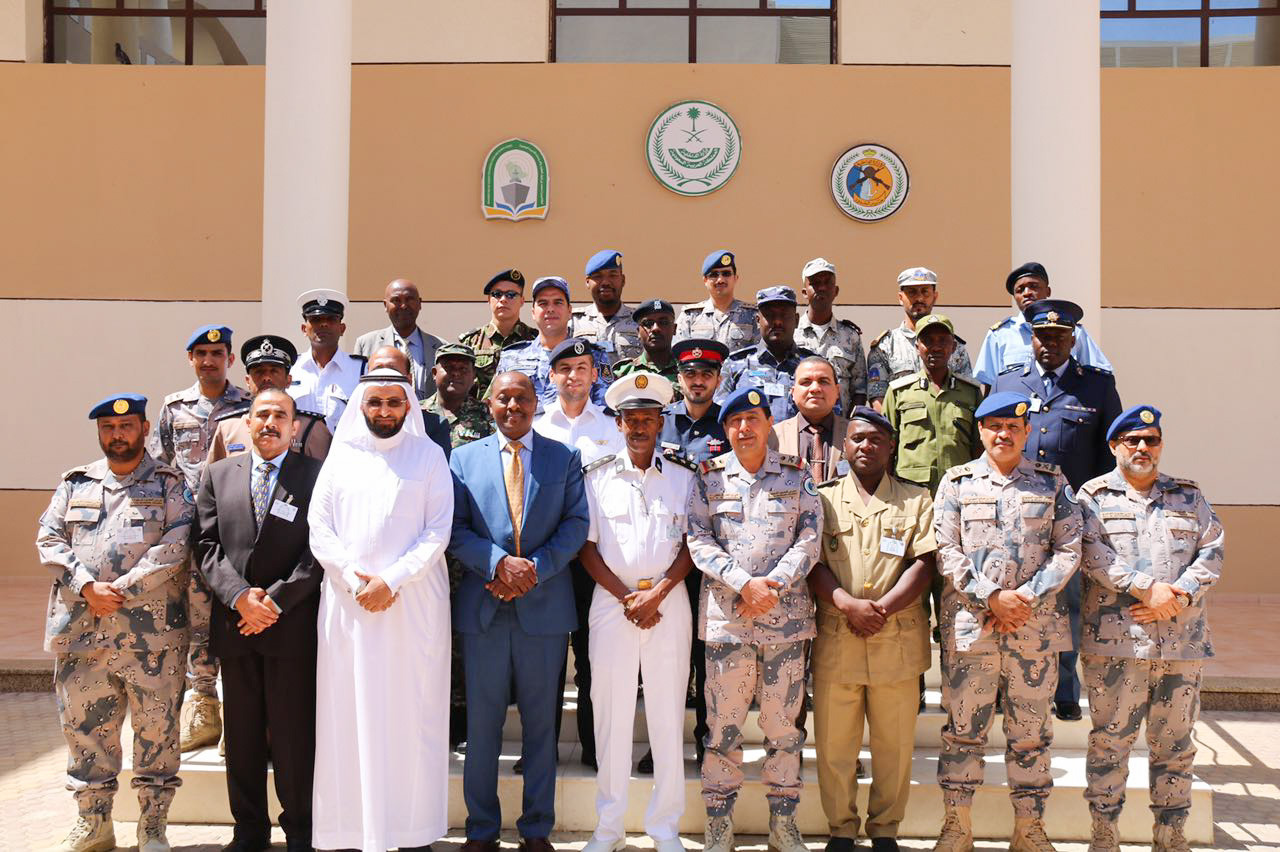
Training of Trainers for Maritime Security in West Indian Ocean and Gulf of Aden
The latest course to prepare participants to deliver training to enhance security in the maritime domain has been delivered at the Djibouti Regional Training Centre (DRTC), Djibouti (1-5 September). Participants from 13 countries* learned teaching skills and were given instruction on dealing with maritime crimes at sea, including piracy/robbery, drug trafficking, marine terrorism, weapons smuggling and human trafficking. The IMO-led course was funded through a Japanese contribution to the Djibouti Code of Conduct trust Fund. It was officially launched by the Japanese Ambassador to Djibouti, H.E. Koji Yonetani. The training is part of an ongoing project which has to date supported 83 courses and benefitted nearly 1,690 trainees from the region. * Comoros, Djibouti, Ethiopia, Jordan, Kenya, Madagascar, Maldives, Mauritius, Mozambique, Saudi Arabia, Sudan, United Republic of Tanzania and Yemen.
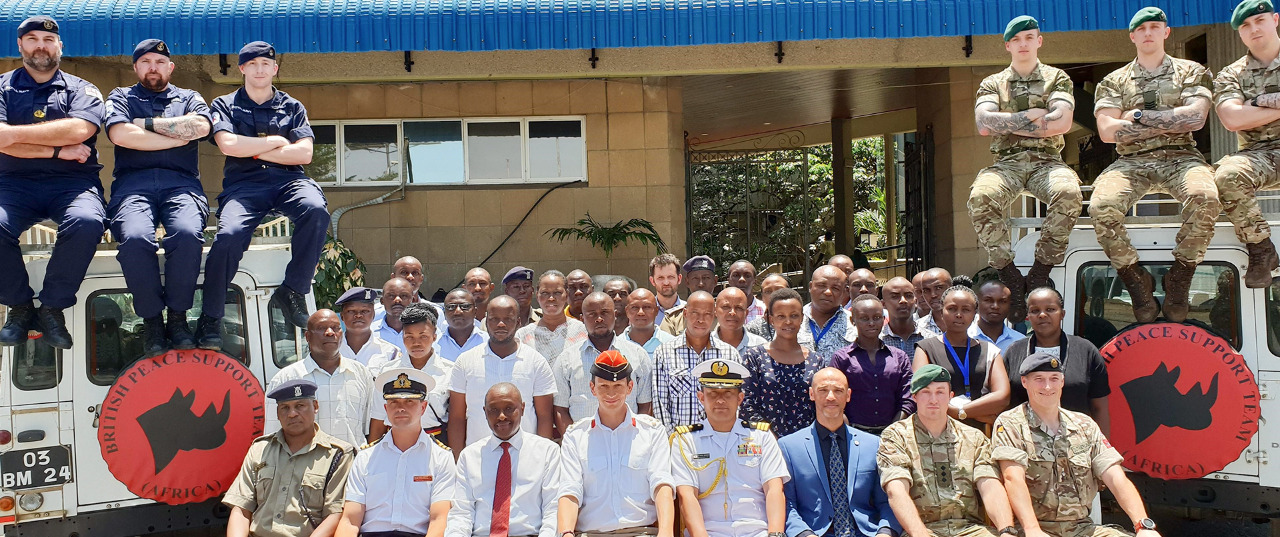
Legal Framework Training for Somalia Maritime Administration
36 senior officials from the Federal Government of Somalia (FGS) received technical training to continue developing the Shipping Code, with the target to establish a National Maritime Administration for Somalia. The workshop was key in guiding and providing the necessary institutional infrastructure for the management and delivery of the international obligations necessary for the maritime sector to thrive in the region. Somalia has over 3,300 km of coastline, the longest and perhaps the most geographically significant in the Horn of Africa, four main commercial seaports and about five minor ports. However, plagued by decades of civil war, a lot of effort is needed to rebuild the sector.
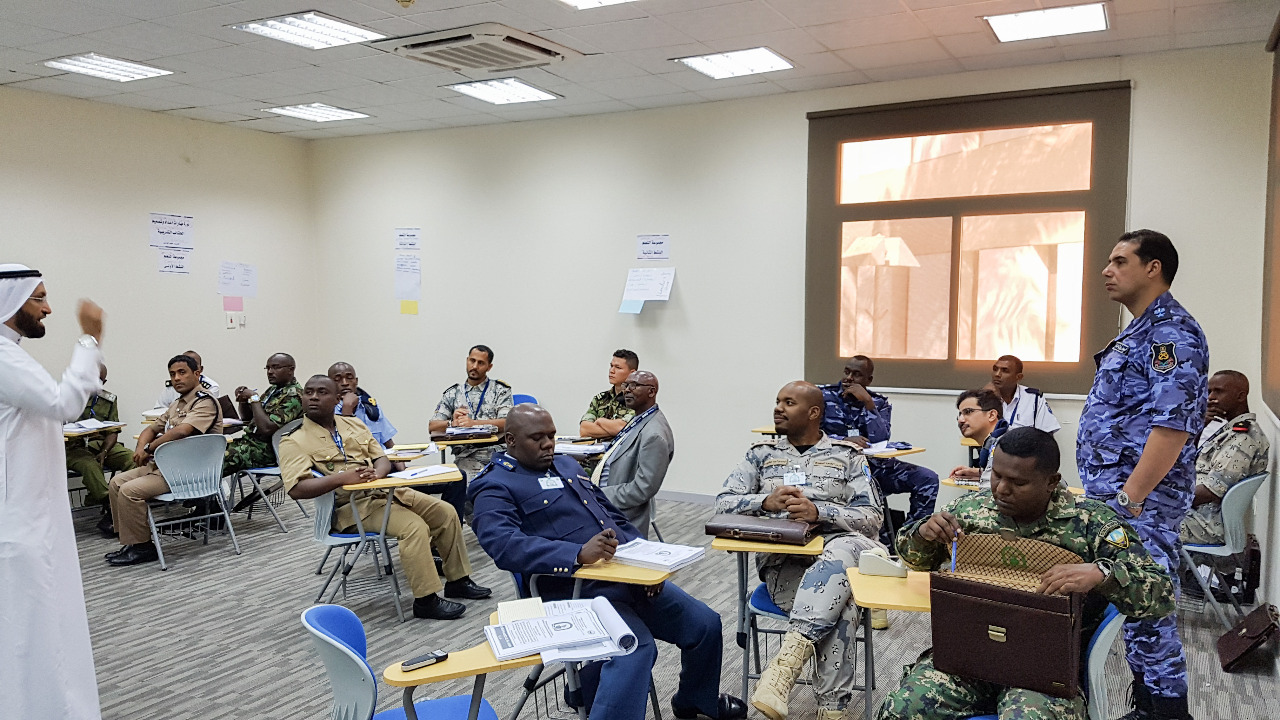
Training for Jeddah Information Sharing Centre Operators
The new, state-of-the-art Jeddah Maritime Information Sharing Centre is set to boost information sharing and support maritime security in the region. The first 15 national operators to work in the centre have completed a three-week training in Jeddah, Saudi Arabia (25 August – 12 Sep 2019) with the support of IMO. It is envisaged that the centre will become fully operational by the end of the year. It will serve both as a regional centre to share information through the Djibouti Code of Conduct focal points, as well as sharing info with all national agencies with responsibility for maritime security.

